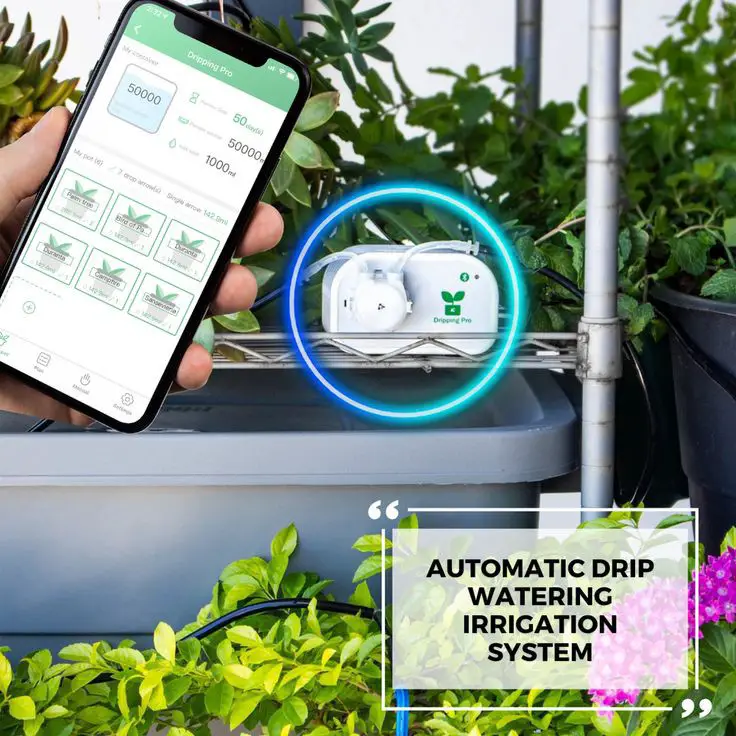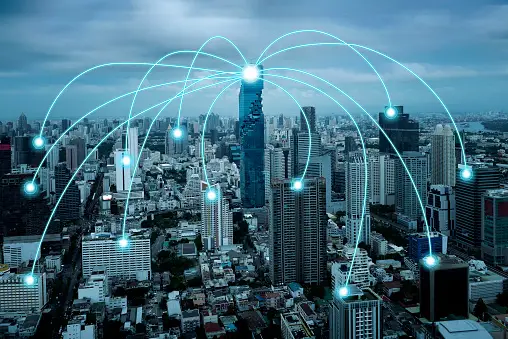In 2024, several cutting-edge solutions are transforming the landscape of irrigation globally. This is a comprehensive look at of some of these groundbreaking technologies.
Water is essential for crop growth and human survival. In the face of climate change, urbanization, and population growth, water management is crucial for the sustainable development of agriculture. The limited water resources and the increasing demand for food present significant challenges for farmers and water managers. Therefore, innovative technologies in irrigation have become essential tools in managing water resources.
The innovative technologies in irrigation which are shaping the future of irrigation water management include but are not limited to smart irrigation controllers, soil moisture sensors, micro-irrigation systems, robotics, artificial intelligence, and precision agriculture.
1. Precision Irrigation Systems
Precision irrigation systems utilize advanced sensors, data analytics, and automation to optimize water usage. These systems monitor soil moisture levels, weather conditions, and crop requirements in real-time, allowing farmers to deliver the right amount of water precisely where and when it's needed. This targeted approach minimizes water wastage, reduces costs, and enhances crop quality and yield.
2. Drip Irrigation
Drip irrigation remains a cornerstone of efficient water management in agriculture. However, recent advancements have made drip systems even more precise and adaptable. Innovations such as pressure-compensating drippers, soil moisture sensors, and remote control capabilities enable farmers to fine-tune water delivery based on specific crop needs and environmental factors.
3. Smart Sprinkler Systems
Smart sprinkler systems integrate IoT (Internet of Things) technology and AI algorithms to optimize sprinkler operation. These systems can adjust spray patterns, duration, and intensity based on factors like soil moisture, weather forecasts, and plant type. By reducing overspray and runoff, smart sprinklers conserve water and minimize environmental impact.
4. Remote Sensing and Satellite Imagery
Remote sensing technologies, including satellite imagery and drones, provide valuable insights into crop health, water stress, and irrigation efficiency. Advanced image processing algorithms analyze spectral data to detect subtle variations in vegetation, enabling farmers to identify irrigation needs, monitor crop health, and detect anomalies early.
5. Automated Irrigation Controllers
Artificial intelligence tools can provide valuable insights into irrigation management by enhancing predictive modeling and decision-making. Machine learning algorithms can analyze large and complex data sets generated by weather sensors, soil moisture sensors, and other sensors to generate recommendations for optimal irrigation schedules. This technology can improve the accuracy of irrigation management, optimize water distribution and reduce water waste. Using artificial intelligence in irrigation can result in better data management, precise irrigation schedules, reduced water consumption, and ultimately increased crop yields.
6. Soil Moisture Monitoring Systems
These devices measure soil moisture levels allowing farmers to assess water availability for crop growth and make informed decisions on irrigation schedules. Soil moisture sensors provide farmers with real-time information on soil moisture levels, enabling a more precise water application. Over-watering or under-watering can be detrimental to crop growth. Soil moisture sensors help farmers to avoid such issues by achieving more precise irrigation, reducing water consumption, and increasing crop yields in the long run.
7. Mobile Applications and Farm Management Software
Mobile applications and farm management software empower farmers to monitor and control irrigation systems remotely. These apps provide access to real-time data, analytics, and alerts, allowing farmers to make informed decisions on irrigation scheduling, water allocation, and resource management from anywhere. By harnessing the power of smartphones and cloud computing, these tools enhance operational efficiency and productivity on the farm.
8. Subsurface Drip Irrigation (SDI)
Subsurface drip irrigation systems deliver water directly to the root zone of crops through buried drip lines. It lowers water loss due to evaporation and surface runoff, resulting in higher water use efficiency and reduced energy costs.
9. Solar-Powered Irrigation Systems
Solar-powered irrigation systems harness solar energy to power pumps, sensors, and other irrigation components. By eliminating the need for grid electricity or diesel generators, these systems reduce operating costs and carbon emissions while increasing energy independence for farmers. They are particularly beneficial in remote or off-grid areas where access to reliable electricity is limited.
10. Hydroponics and Vertical Farming
Hydroponic and vertical farming systems represent innovative approaches to irrigation by growing crops in soilless environments. These systems recirculate nutrient-rich water solutions, delivering precisely controlled amounts of water and nutrients directly to plant roots. By optimizing resource use and maximizing space efficiency, hydroponic and vertical farming techniques offer sustainable solutions to urban agriculture and food production challenges.
The continuous advancement of irrigation technologies is essential for addressing food security while mitigating the impact of water scarcity and climate change. By embracing innovative irrigation solutions, farmers can enhance productivity, conserve water resources, and build resilient agricultural systems for the future.
The innovative technologies in irrigation which are shaping the future of irrigation water management include but are not limited to smart irrigation controllers, soil moisture sensors, micro-irrigation systems, robotics, artificial intelligence, and precision agriculture.
1. Precision Irrigation Systems
Precision irrigation systems utilize advanced sensors, data analytics, and automation to optimize water usage. These systems monitor soil moisture levels, weather conditions, and crop requirements in real-time, allowing farmers to deliver the right amount of water precisely where and when it's needed. This targeted approach minimizes water wastage, reduces costs, and enhances crop quality and yield.
2. Drip Irrigation
Drip irrigation remains a cornerstone of efficient water management in agriculture. However, recent advancements have made drip systems even more precise and adaptable. Innovations such as pressure-compensating drippers, soil moisture sensors, and remote control capabilities enable farmers to fine-tune water delivery based on specific crop needs and environmental factors.
3. Smart Sprinkler Systems
Smart sprinkler systems integrate IoT (Internet of Things) technology and AI algorithms to optimize sprinkler operation. These systems can adjust spray patterns, duration, and intensity based on factors like soil moisture, weather forecasts, and plant type. By reducing overspray and runoff, smart sprinklers conserve water and minimize environmental impact.
4. Remote Sensing and Satellite Imagery
Remote sensing technologies, including satellite imagery and drones, provide valuable insights into crop health, water stress, and irrigation efficiency. Advanced image processing algorithms analyze spectral data to detect subtle variations in vegetation, enabling farmers to identify irrigation needs, monitor crop health, and detect anomalies early.
5. Automated Irrigation Controllers
Artificial intelligence tools can provide valuable insights into irrigation management by enhancing predictive modeling and decision-making. Machine learning algorithms can analyze large and complex data sets generated by weather sensors, soil moisture sensors, and other sensors to generate recommendations for optimal irrigation schedules. This technology can improve the accuracy of irrigation management, optimize water distribution and reduce water waste. Using artificial intelligence in irrigation can result in better data management, precise irrigation schedules, reduced water consumption, and ultimately increased crop yields.
6. Soil Moisture Monitoring Systems
These devices measure soil moisture levels allowing farmers to assess water availability for crop growth and make informed decisions on irrigation schedules. Soil moisture sensors provide farmers with real-time information on soil moisture levels, enabling a more precise water application. Over-watering or under-watering can be detrimental to crop growth. Soil moisture sensors help farmers to avoid such issues by achieving more precise irrigation, reducing water consumption, and increasing crop yields in the long run.
7. Mobile Applications and Farm Management Software
Mobile applications and farm management software empower farmers to monitor and control irrigation systems remotely. These apps provide access to real-time data, analytics, and alerts, allowing farmers to make informed decisions on irrigation scheduling, water allocation, and resource management from anywhere. By harnessing the power of smartphones and cloud computing, these tools enhance operational efficiency and productivity on the farm.
8. Subsurface Drip Irrigation (SDI)
Subsurface drip irrigation systems deliver water directly to the root zone of crops through buried drip lines. It lowers water loss due to evaporation and surface runoff, resulting in higher water use efficiency and reduced energy costs.
9. Solar-Powered Irrigation Systems
Solar-powered irrigation systems harness solar energy to power pumps, sensors, and other irrigation components. By eliminating the need for grid electricity or diesel generators, these systems reduce operating costs and carbon emissions while increasing energy independence for farmers. They are particularly beneficial in remote or off-grid areas where access to reliable electricity is limited.
10. Hydroponics and Vertical Farming
Hydroponic and vertical farming systems represent innovative approaches to irrigation by growing crops in soilless environments. These systems recirculate nutrient-rich water solutions, delivering precisely controlled amounts of water and nutrients directly to plant roots. By optimizing resource use and maximizing space efficiency, hydroponic and vertical farming techniques offer sustainable solutions to urban agriculture and food production challenges.
The continuous advancement of irrigation technologies is essential for addressing food security while mitigating the impact of water scarcity and climate change. By embracing innovative irrigation solutions, farmers can enhance productivity, conserve water resources, and build resilient agricultural systems for the future.


























